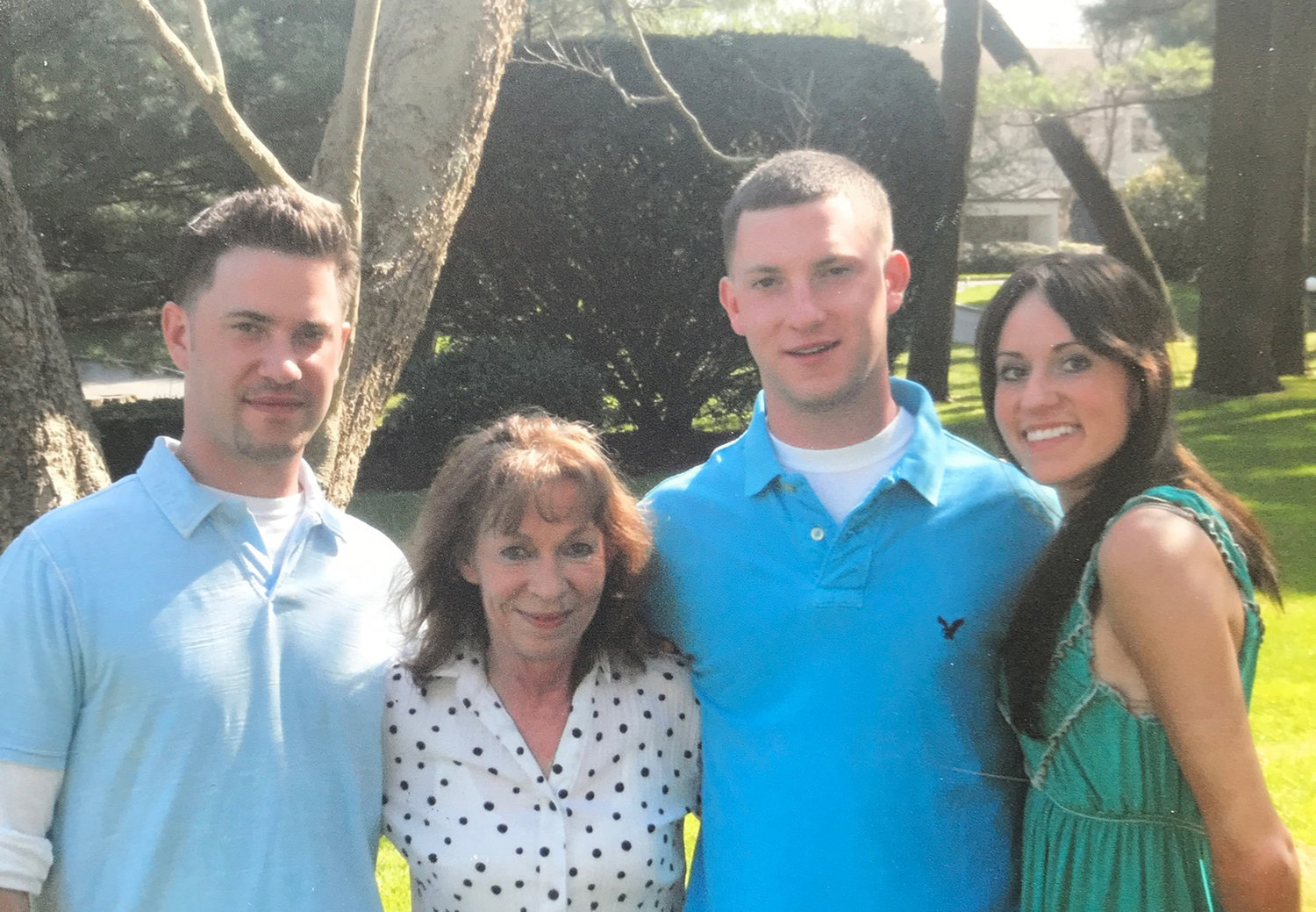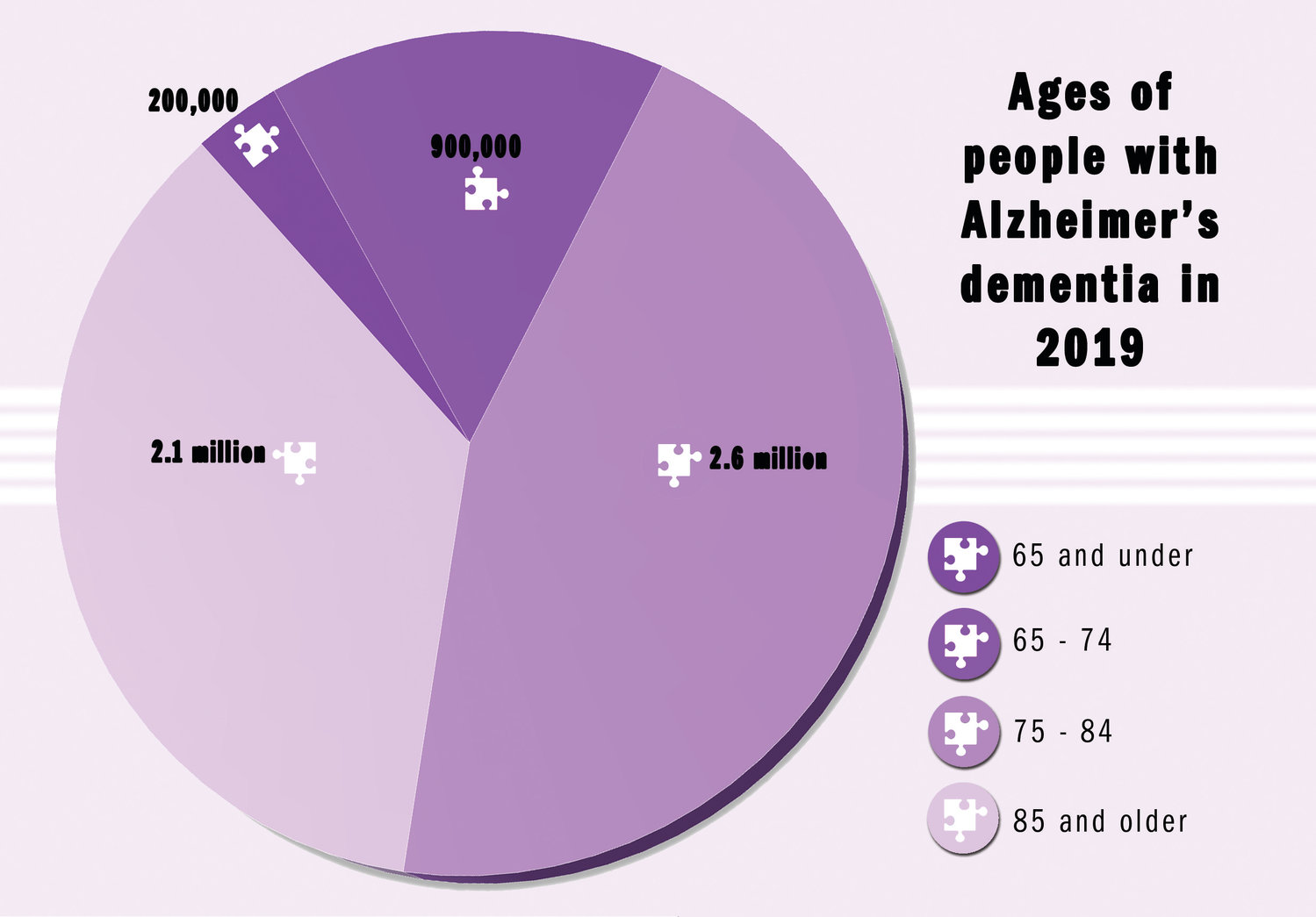West Hempstead resident advocates for people with Alzheimer’s
Several Alzheimer’s and dementia care advocates visited Albany with the Alzheimer’s Association on March 5 to lobby for more support in treating the disease. The trip, on what the organization called Alzheimer’s Advocacy Day, coincided with the release of the group’s 2019 Facts and Figures Report, revealing that an estimated 5.8 million Americans have the disease, including 400,000 in New York.
Peter Karris, of West Hempstead, was among the volunteer advocates who boarded a 6 a.m. bus in Lake Success to share his personal Alzheimer’s story with elected officials. Karris’s mother, Margaret Karris, 68, was diagnosed with younger-onset Alzheimer’s disease in 2013. When he visited her at the Parker Jewish Institute last fall, Karris said, he noticed that her condition had dramatically declined.
“She stopped walking, she stopped being able to communicate and she wasn’t able to feed herself,” he said. “All of the symptoms kind of happened at the same time very rapidly due to the early-onset Alzheimer’s.”
Karris, who was living in San Diego at the time, said that once he saw his mother’s condition, he decided to move to back to New York. Now, he visits his mother almost daily.
When Karris was growing up, his mother was active at their church, Grace Baptist Church in Lake Grove. As a single mother, she raised three children while working as a dietary aide at a nursing home in United Presbyterian Residence in Woodbury. She lived in Kings Park and Ronkonkoma, in Suffolk County, before she relocated to New Hyde Park last year.
“Church was always extremely important to her,” her son said. “She always helped out on Thanksgiving with gift baskets, she always helped out [the] food pantry, and it’s something that she’s been involved with her whole life. She was just a very caring and selfless woman.”
Karris said that his sister, Cassandra Ottaviano, and his brother, Greg, helped to relocate their mother to Parker Jewish Institute.
“Things were planned pretty well from that point forward, and my sister did a lot of work to make sure that our mother was taken care of,” Peter said. “But if she was diagnosed sooner, we may have been able to plan a little bit better.”
During his trip to Albany, Karris met with Joseph Erdman, legislative director for State Sen. Anna Kaplan, who shared his own mother’s struggle with Alzheimer’s. The two exchanged stories and discussed ways that legislators could support the mission of the Alzheimer’s Association.
“It was empowering just to know that people were there to listen and for them to know that we’re doing our part to help others,” Karris said.
Ottaviano started a fundraising drive, for which she collects dolls for Alzheimer’s patients at Parker Jewish Institute. She shared the drive on Facebook groups in her community, and has collected dozens. Ottaviano, a physician’s assistant at NYU Winthrop Hospital in Garden City, said dolls can be therapeutic for Alzheimer’s patients.
“For the patients, the dolls kind of mimic a loved one,” Ottaviano, of Bellmore, said. “When you’re brought back to a time in your life where you were caring for something or somebody, it makes them feel like they have purpose again. Our mother was always one to give back, so I think for us, we sort of want to honor her in that way.”
As the U.S. population grows, the number of people with the disease will also increase, according to the Alzheimer’s Association. By 2050, the number of people age 65 and older with Alzheimer’s may grow to a projected 13.8 million, barring the development of medical breakthroughs to prevent, slow or cure it, according to the organization.
“The numbers are staggering,” Ann Healey, communications manager of the Alzheimer’s Association’s Long Island Chapter, said in a news release. “Alzheimer’s continues to be the most expensive disease in the country and will cost $290 billion this year. In addition, death rates due to Alzheimer’s have risen 145 percent since 2000, while deaths for most other major diseases have decreased.”
Karris said the organization has the right infrastructure to combat the disease, but that funding is needed. “It’s important to raise awareness of the resources that the Alzheimer’s Association has so that they can continue to help people plan properly,” he said. “The more people that are aware, the more funding can be allocated to the real solution, which is a cure.”
He added that providing health care for someone with Alzheimer’s is expensive, which makes it more important to diagnose the disease early. That way, families can plan financially years in advance. Karris said that he and his family hope to continue spreading awareness to ensure that people can identify Alzheimer’s and be better prepared when it happens.
“By doing that, I feel like more people might become aware of the situation, and it can help to works towards a solution,” Karris said.

 63.0°,
A Few Clouds and Breezy
63.0°,
A Few Clouds and Breezy 







